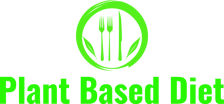Plant Based Diet","Categories:","Nutrient Deficiencies, Supplement Guides, Expert Advice, Balanced Diets, Health Research
Join the journey to a balanced plant-based diet and discover expert tips to overcome nutrient deficiencies and achieve optimal health.
RECIPESNUTRITIOUS MEALMEALHEALTHPLANT-BASED KETO
5/22/20255 min read


Adopting a plant-based diet can profoundly impact your health, reducing the risk of chronic diseases, but it requires careful planning to avoid nutrient deficiencies. You'll want to focus on key nutrients like Vitamin B12, iron, and omega-3 fatty acids. Incorporating fortified foods and diversified protein sources can help maintain a balanced diet. Consulting with healthcare professionals ensures your nutritional needs are met. Curious about how to optimize your plant-based nutrition further?
Key Takeaways
Plant-based diets prioritize whole foods from plants, potentially reducing chronic disease risks.
Well-planned plant-based diets can meet all nutritional needs, including protein and essential nutrients.
Fortified foods and supplements are crucial for vitamin B12 intake in plant-based diets.
Combining plant proteins and pairing foods improves nutrient absorption and protein quality.
Regular consultation with healthcare providers ensures personalized guidance on nutrient deficiencies and supplements.
Understanding Plant-Based Diets
When considering a plant-based diet, it's essential to understand its foundation and benefits. Primarily, a plant-based diet emphasizes consuming whole foods derived from plants like fruits, vegetables, grains, nuts, and seeds.
One of the primary plant-based benefits is the potential reduction in the risk of chronic diseases such as heart disease, diabetes, and certain cancers.
However, navigating dietary myths is crucial. For instance, some might claim plant-based diets lack sufficient protein or vital nutrients, but research indicates that a well-planned diet can meet all your nutritional needs.
Key Nutritional Considerations
Understanding the fundamentals of a plant-based diet sets the stage for exploring the key nutritional considerations needed to thrive on this lifestyle.
Prioritizing nutrient timing and effective food pairing ensures you obtain essential nutrients. For instance, pairing vitamin C-rich foods like bell peppers with iron sources such as lentils can enhance iron absorption, supporting overall health.
Consuming protein at regular intervals, like incorporating legumes and quinoa throughout your day, aids in maintaining muscle mass and energy levels.
It’s also crucial to balance omega-3 and omega-6 fatty acids, which can be achieved by consuming flaxseeds and walnuts.
Addressing Vitamin B12 Deficiency
Although choosing a plant-based diet offers numerous health benefits, it’s important to address the potential risk of Vitamin B12 deficiency to maintain optimal health.
Vitamin B12 is crucial for nerve function and red blood cell formation. Since it's predominantly found in animal products, B12 sources in a plant-based diet are limited. You might consider fortified foods like plant milks, breakfast cereals, and nutritional yeast to obtain this essential nutrient.
Another option is B12 supplements, which can efficiently meet your daily requirements. Be aware of absorption challenges, such as reduced stomach acid or certain medications that might impede B12 uptake.
Regular monitoring of your B12 levels ensures you’re getting enough, allowing you to enjoy the benefits of a plant-based diet without compromise.
Managing Iron Levels on a Plant-Based Diet
How can you ensure you’re meeting your iron needs on a plant-based diet? Focus on optimizing iron absorption from plant sources.
Non-heme iron, found in plants like lentils, spinach, and quinoa, doesn’t absorb as efficiently as heme iron from animal products. To enhance absorption, pair iron-rich foods with vitamin C sources like bell peppers or citrus fruits.
Avoid consuming tea or coffee with meals, as these can inhibit iron absorption. Additionally, soaking or sprouting beans and grains can reduce phytates, compounds that hinder iron uptake.
Regularly including a variety of iron-rich plant sources in your meals supports balanced iron levels. If you're concerned about your iron status, consider consulting a healthcare provider for personalized advice and possible supplementation.
Ensuring Adequate Omega-3 Intake
Curious about how to ensure you're getting enough omega-3 fatty acids on a plant-based diet? Omega-3s are crucial for brain, heart, and overall health.
While fish is a common source, plant-based omega-3 sources like flaxseeds, chia seeds, hemp seeds, and walnuts offer effective alternatives. These foods are rich in alpha-linolenic acid (ALA), which your body can partially convert to the essential eicosapentaenoic acid (EPA) and docosahexaenoic acid (DHA).
However, the conversion rate is limited. To bridge the gap, consider omega-3 supplementation. Algal oil supplements, derived from microalgae, provide direct sources of EPA and DHA, making them an excellent option for vegans.
Calcium and Vitamin D Sources
While ensuring adequate omega-3 intake is vital on a plant-based diet, you also need to focus on sufficient calcium and vitamin D levels to support bone health.
Reliable calcium sources include fortified plant milks, tofu, almonds, and leafy greens like kale and bok choy. These options help meet your daily calcium needs without animal products.
For vitamin D, consider fortified foods such as plant-based milks and cereals. Sun exposure is another natural vitamin D source; however, factors like geographic location and skin type may limit its effectiveness.
You might benefit from a vitamin D supplement, especially during winter months or if you have limited sun exposure.
Prioritize these nutrients to maintain optimal bone health on your plant-based journey.
Protein Strategies for Plant-Based Eaters
A well-planned plant-based diet provides ample protein to meet your nutritional needs. By diversifying your protein sources, you ensure a complete amino acid profile. Incorporate foods like lentils, chickpeas, tofu, and quinoa into your meals. These not only offer high protein content but also enhance meal variety.
When meal planning, consider combining different plant proteins, such as beans with rice or peanut butter on whole-grain bread, to boost protein quality. Regularly rotate your protein sources to maintain interest and nutritional balance.
The Role of Zinc and Iodine
When transitioning to a plant-based diet, ensuring adequate intake of essential minerals like zinc and iodine is crucial for maintaining optimal health.
Zinc plays a vital role in immune function, wound healing, and DNA synthesis. Reliable zinc sources include legumes, nuts, seeds, and whole grains. Soaking or sprouting these foods can enhance zinc absorption.
Iodine, essential for thyroid function and metabolic regulation, can be obtained from iodized salt and sea vegetables like seaweed. Understanding iodine benefits can help prevent thyroid disorders and promote cognitive health.
It’s important to balance your diet with these nutrient-rich foods to avoid deficiencies. Monitoring your intake and adjusting your diet accordingly ensures you’re meeting your nutritional needs while embracing a plant-based lifestyle.
Exploring Supplement Options
For those embracing a plant-based diet, exploring supplement options can be a strategic way to ensure nutritional adequacy.
It's important to consider supplement timing to maximize absorption. For instance, taking iron supplements with vitamin C-rich foods can enhance iron absorption. Additionally, herbal options like spirulina offer a plant-based source of protein and essential fatty acids, complementing your dietary choices.
Before adding any supplements, consult a healthcare professional to assess your specific nutritional needs. They'll guide you in selecting the right supplements and timing to meet your goals.
Expert Tips for Balanced Plant-Based Nutrition
While transitioning to a plant-based diet can be rewarding, ensuring nutritional balance requires careful planning and informed choices.
Start by focusing on meal planning to incorporate a variety of fruits, vegetables, whole grains, and legumes. Diversifying your food sources helps you obtain essential nutrients.
Pay attention to nutrient timing; consuming protein-rich foods like beans or lentils post-workout enhances muscle recovery. Additionally, pair iron-rich foods with vitamin C sources to boost absorption.
Monitor your intake of critical nutrients such as vitamin B12, omega-3 fatty acids, and calcium. Consulting with a nutritionist can provide tailored advice to meet your dietary needs effectively.
Conclusion
Adopting a plant-based diet can greatly enhance your health by reducing the risk of chronic diseases, but it requires careful planning to avoid nutrient deficiencies. Prioritize diversifying your protein sources and include fortified foods to ensure you're getting enough Vitamin B12, iron, and omega-3s. Regularly consult healthcare professionals for personalized advice and consider supplements as needed. With informed choices and strategic food pairings, you can maintain a balanced, nutrient-rich diet that supports overall well-being.
